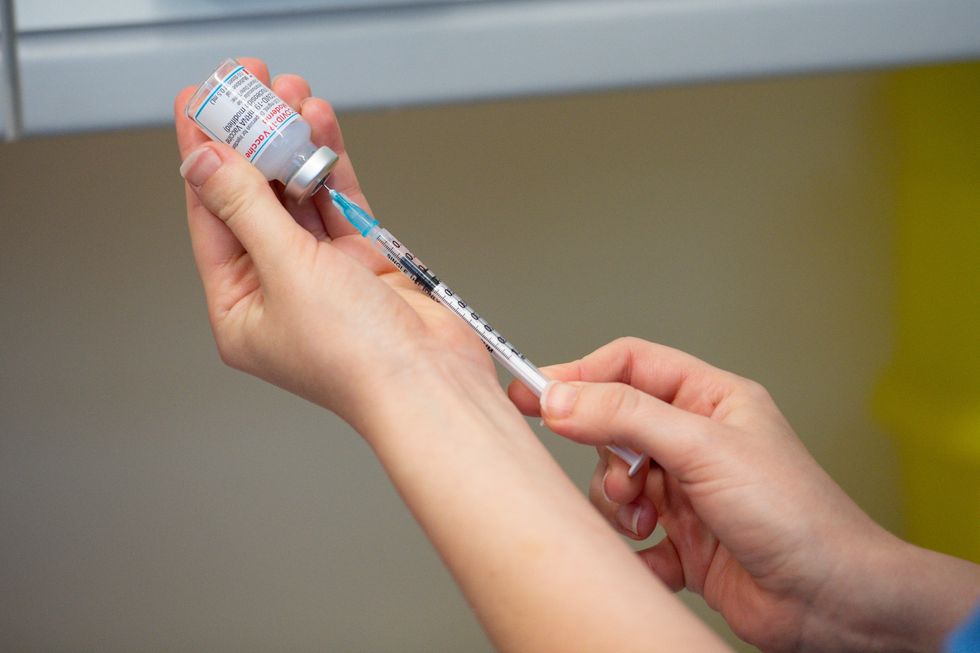Covid: Parents threaten to sue school if kids given Covid vaccines without permission

Nurse preparing the Moderna Covid-19 vaccine. Schools are to be given access to free teaching materials to help challenge conspiracy theories fuelling vaccine hesitancy in some communities.
Jacob King









